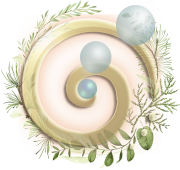
Theobroma cacao, also known as cacao tree or cocoa tree is an evergreen tree originating from the tropical region of the American continent. Theobroma means the "drink of the gods" or "food of the gods".
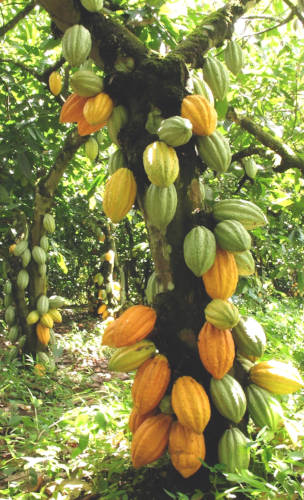
Theobroma cacao needs a good soil, high humidity, and regular rainfall. It is polinated by small flies (Forcipomyia midges). It is a relatively small tree (less than 8m or 26 feet) and prefers to be covered by a canopy. The leaves taste spicy, are filled with a milky liquid and are poisonous.
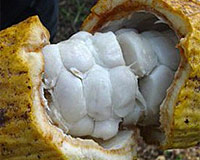
The cocoa pod which is the fruit of the Theobroma cacao, contains about 20-60 seeds known as cocoa beans. The fruit is usually gathered in June and December.
The beans are removed from the pod, the surrounding coating, called 'baba de cacao' (see picture to the right), removed and they are then left to ferment. The cocoa beans develop the chocolate flavor during fermentation.
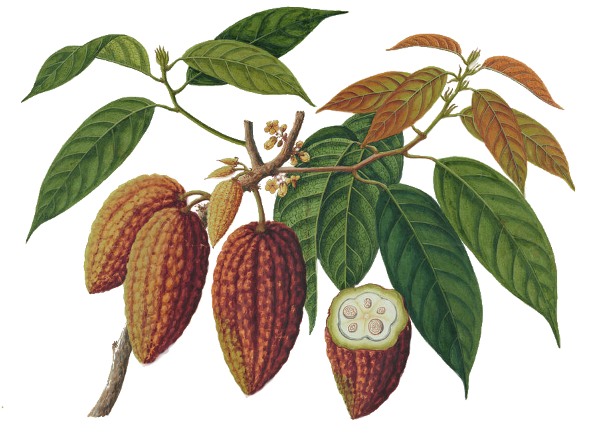
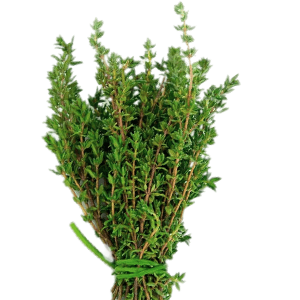
Thymus or Thyme is a genus of a little over 300 aromatic, mostly evergreen species from the Lamiaceae family of plants. The best known species is Thymus vulgaris or Common Thyme.
In ancient times, thyme was recommended as a stimulant, while sleeping on it or inhaling thyme was considered a cure or at least a treatment for epilepsy and melancholia.
Ever since the 18th century, it has been known that the oil of thyme contains thymol, which has strong antiseptic properties. Thyme essential oil is therefore efficient when used topically, as an antiseptic, especially for fungal and bacterial infections. Thymol also loosens the phlegm and breaks down thick mucus. Thyme, in various forms, is a common remedy for a coughing, or any flu-like condition.
 Folk remedy
Folk remedy
Hildegard Von Bingen, a medieval mystic and healer, says about thyme:
"Whoever drinks a cup of thyme tea in the morning will soon know its benefits:
invigorated spirits, a soothed stomach, no morning cough and a general feeling of comfort."
Thyme is a safe herb. Pregnant women should avoid Thyme essential oil.
All the information provided within the Herbalism & Healing glossary and guide is collected and shared responsibly and to the best of the author's knowledge. Neither the author nor the website offer any guarantees for any of the information, nor do they take any responsibility for anything that may or may not happen to you. However, the author does use and apply the information exactly as presented within these pages. It is meant to help, but what you do with it is up to you.
It is your life. Live it well.